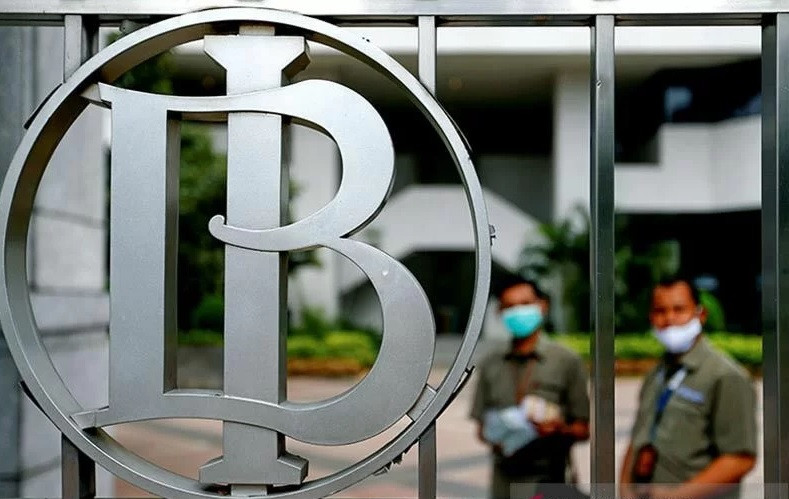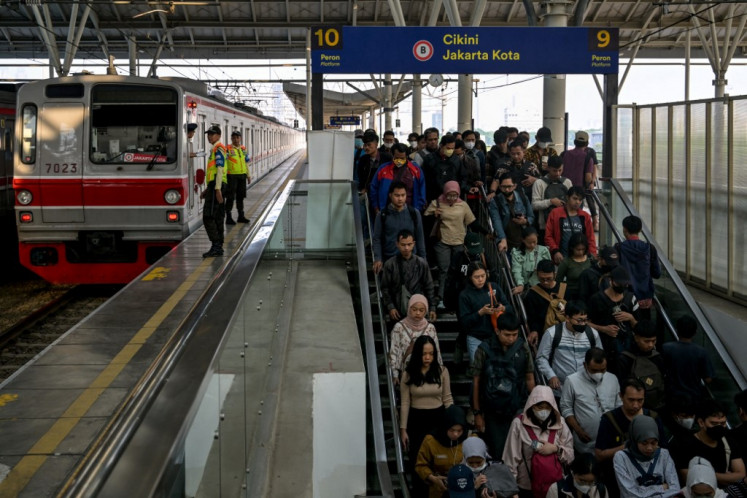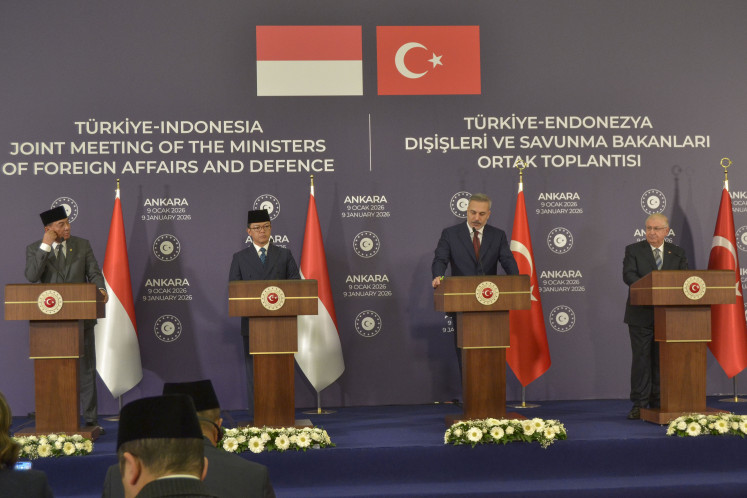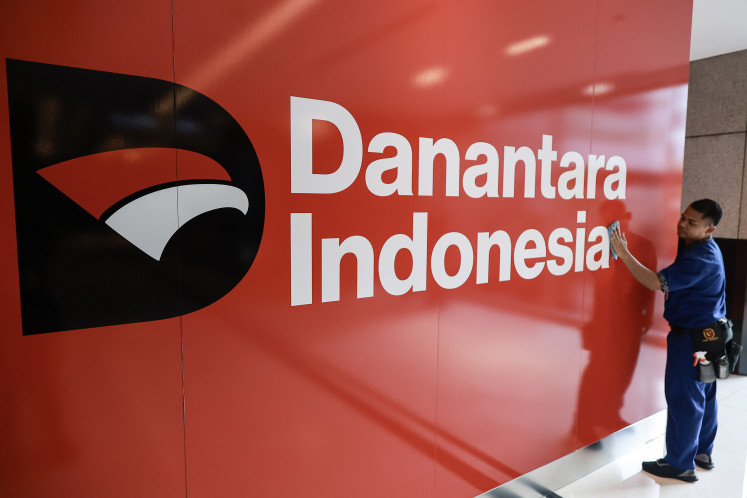Popular Reads
Top Results
Can't find what you're looking for?
View all search resultsPopular Reads
Top Results
Can't find what you're looking for?
View all search resultsStill focusing on recovery
The monetary policy should depend mainly on core inflation and not inflationary pressures associated with administered prices, transportation or volatile food commodities.
Change text size
Gift Premium Articles
to Anyone
T
he United States Federal Reserve’s rate increase of 75 basis points on June 15 and its indication of another three-quarter-point hike in July still did not cause Bank Indonesia (BI) to budge and raise its policy rate, thereby bucking the money-tightening trend around the world to fight inflation. BI instead still intends to focus on sustaining the post-pandemic economic recovery as inflationary pressures still come mostly from supply gaps and not from demand.
The BI Board of Governors Meeting agreed on Thursday to hold the BI seven-day reverse repo rate at 3.5 percent, while also maintaining the deposit facility (DF) rates at 2.7 percent and lending facility (LF) rates at 4.25 percent.
But most analysts expect a rate hike of at least 25 basis points next month or sometime in the second half, otherwise the rupiah will come under stronger pressure as the pace of capital outflows escalate with all its negative repercussions, including stronger imported inflationary pressures.
As the fiscal authority, the government has pledged to absorb the shocks from the soaring energy prices by increasing subsidies and BI had already decided last month to raise the rupiah reserve requirements for conventional commercial banks from 5 to 6 percent earlier this month, 7.5 percent in July and 9 percent in September, there is no need for a hasty rate hike this month.
The House of Representatives has approved the state budget amendments, which will allow energy subsidies to significantly rise to Rp 520 trillion (US$35.8 billion), or over 16 percent of total spending, to maintain the level of the people’s purchasing power.
BI also apparently wanted to wait for the final core inflation rate for this month, which will be out next week. BI also seems better prepared now than when it was facing tapering in 2013 to cope with the impact of the US money tightening because foreign holdings of government bonds are estimated at only 17 percent, with foreign exchange reserves enough for six months of imports and government short-term debt payments.
We share the view that monetary policy should depend mainly on core inflation and not inflationary pressures associated with administered prices, transportation or volatile food commodities.
BI said its decision was consistent with the need to manage inflation and maintain exchange rate stability, while continuing to foster economic growth amid escalating external pressures stemming from the geopolitical tensions between Russia and Ukraine as well as faster monetary policy normalization in several advanced and developing economies.
BI has constantly monitored inflation developments and implements the measures necessary to manage inflation within the predetermined 3 percent±1 percent target corridor set for 2022 and 2023.
Bank Indonesia has rightly signaled it will continue to build monetary and fiscal policy coordination with the fiscal authority while remaining committed to purchasing government bonds totaling Rp 224 trillion in 2022 to fund the health and humanitarian budgets.
Similarly, coordination under the auspices of the Financial System Stability Committee as well as bilateral coordination between Bank Indonesia and the Financial Services Authority (OJK) are continually strengthened to maintain financial system stability. Moreover, the country’s stable macroeconomic fundamentals provide the basis for a gradual and predictable adjustment to policy rates.











